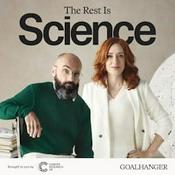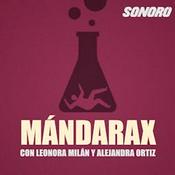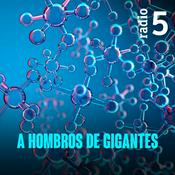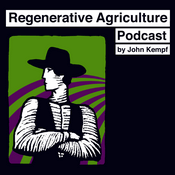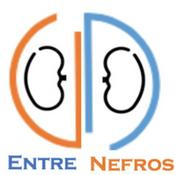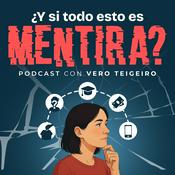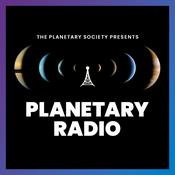Epidemiology Counts from the Society for Epidemiologic Research
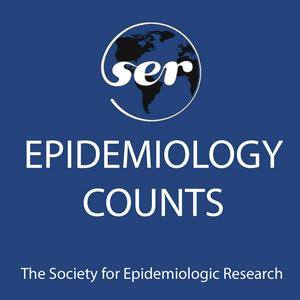
41 episodios

Epidemiology Counts – Episode 42 – Wildfires
16/2/2024 | 42 min
The area of land affected by wildfires has increased annually at a more rapid pace than the actual number of wildfires. With climate change comes an increase in seasonal conditions that support wildfires, such as warmer springs and longer dry seasons. Wildfires have any immediately tangible consequences. Smoke may warrant school closures and warnings to stay indoors for many vulnerable populations, such as individuals with respiratory conditions. Expecting wildfire frequency to continue increasing, it’s important to understand their potential health impacts, and how studying those impacts is fundamentally different from other areas in public health research.

Epidemiology Counts – Episode 41 – Eating Disorders
13/9/2023 | 49 min
Eating disorders such as anorexia nervosa, bulimia nervosa, and binge eating, are very common and some of the most complicated psychiatric disorders to address. It is estimated that almost 1 in 10 Americans will experience an eating disorder at some point in their lifetime. Girls and women are more likely to experience an eating disorder as are people of color, but people of all genders and races can be affected. There is evidence that the COVID-19 pandemic has exacerbated the problem of eating disorders. In this episode of Epi Counts, hosts Bryan James and Ghassan Hamra speak with Ariel Beccia, a Postdoctoral Research Fellow in the Division of Adolescent and Young Adult Medicine at Boston Children's Hospital and Harvard Medical School about the epidemiology of eating disorders and how the COVID pandemic may have impacted the burden, particularly in younger persons.

SER 2023 Live Podcast Recording: Busting Epi Myths
11/7/2023 | 1 h 10 min
The SER 2023 conference in Portland, Oregon was the site of the first ever live recording of the Epidemiology Counts podcast with an audience! Host Bryan James was joined by the hosts of the SERious Epi podcast, Matt Fox and Hailey Banack to lead a fun discussion on busting epidemiology myths in front of a room of raucous epidemiologists. Six awesome guests joined the panel to bust a myth of their choosing, which ranged from scientific, to historical, to personal: Kerry Keyes, Peter Tennant, Lindsey Russo, Ari Nandi, Marcia Pescador-Jiminez, and Lisa Bodnar. The energy in the room was high for this one, folks! If you are an SER member who is interested in helping out with the Epidemiology Counts podcast, please contact Bryan James at: [email protected]

Epidemiology Counts – Episode 40 – Disasters & Risk Assessment
05/4/2023 | 52 min
The recent train derailment in East Palestine (apologies for host Bryan James’ mispronunciation in the Intro), Ohio raised major concerns over the release of harmful chemicals such as vinyl chloride into the environment. The town was evacuated for 5 days until authorities deemed that it was safe to return, though many lingering questions remained as to the safety of the air and water after such a disaster. This train derailment raised questions as to how experts assess the risk to exposed persons after a major disaster—both quickly assessing the immediate threat to residents, as well as observing long term health effects like increased risk for cancer. In this episode of Epi Counts, hosts Bryan James and Ghassan Hamra talk to Keeve Nachman from the Johns Hopkins Bloomberg School of Public Health, an expert in risk assessment, about how these decisions are made, and whether we really can ever get a yes or no answer to “is it safe now?” after a major disaster.

Epidemiology Counts – Episode 39 – Alzheimer’s Disease and Dementia
09/2/2023 | 1 h 5 min
In this episode of Epi Counts, host Bryan James talks to Maria Glymour, the incoming chair of the Department of Epidemiology at Boston University School of Public Health, about their shared area of research: the epidemiology of Alzheimer’s disease and dementia. In this conversation, they discuss the latest on how scientists are attempting to define Alzheimer’s disease biologically as a distinct concept from the dementia syndrome, as well as the controversies surrounding such a definition. They cover what the evidence says about what we can do to prevent dementia, and what aspects of Alzheimer’s and dementia make these conditions particularly difficult to study. Finally, they address the cautious excitement regarding the recent FDA approval of two new Alzheimer’s drugs that appear to target the underlying disease after decades of failed trials, and the societal, ethical, and financial implications that arise from the introduction of these therapies. Show notes: Alzheimer’s Association Facts & Figures report https://www.alz.org/alzheimers-dementia/facts-figures
Más podcasts de Ciencias
Podcasts a la moda de Ciencias
Acerca de Epidemiology Counts from the Society for Epidemiologic Research
Escucha Epidemiology Counts from the Society for Epidemiologic Research, StarTalk Radio y muchos más podcasts de todo el mundo con la aplicación de radio.net

Descarga la app gratuita: radio.net
- Añadir radios y podcasts a favoritos
- Transmisión por Wi-Fi y Bluetooth
- Carplay & Android Auto compatible
- Muchas otras funciones de la app
Descarga la app gratuita: radio.net
- Añadir radios y podcasts a favoritos
- Transmisión por Wi-Fi y Bluetooth
- Carplay & Android Auto compatible
- Muchas otras funciones de la app


Epidemiology Counts from the Society for Epidemiologic Research
Descarga la app,
Escucha.






